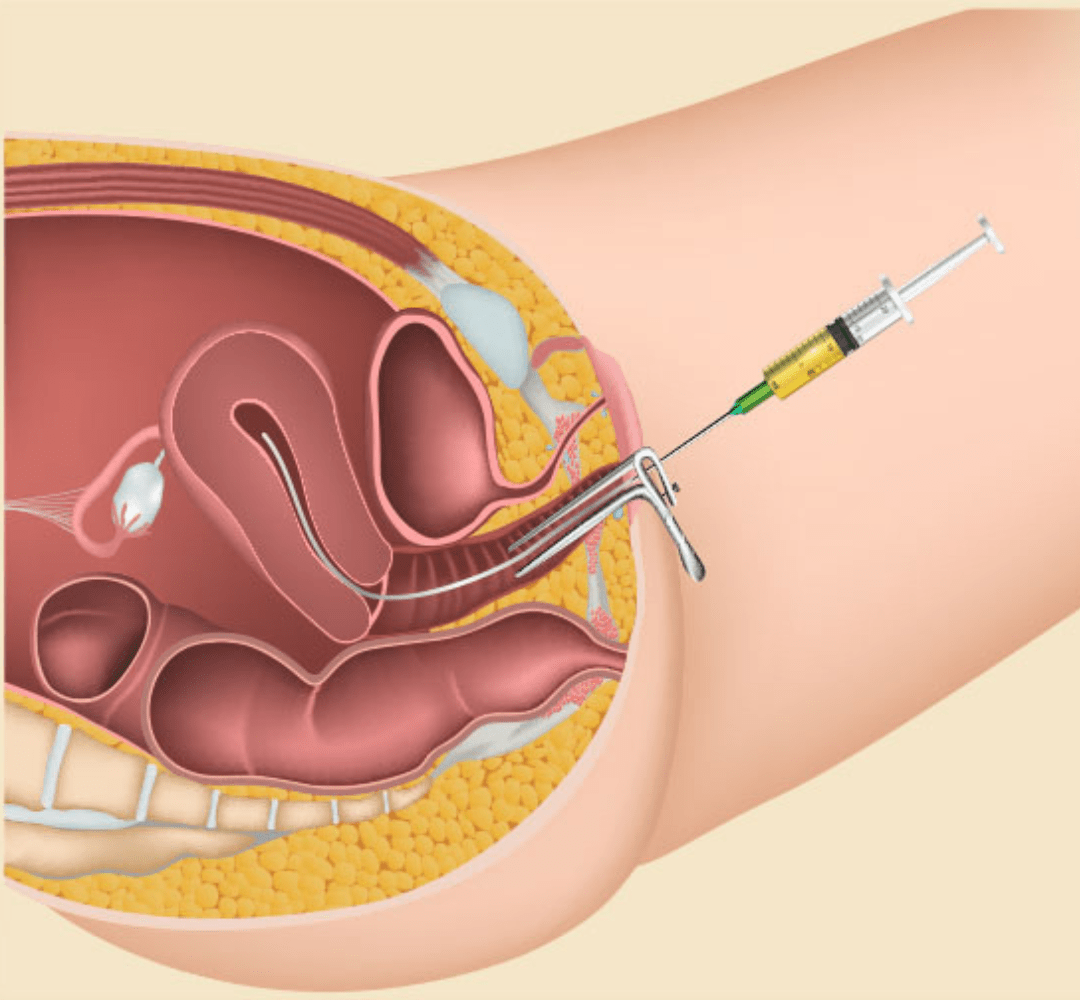
- ABOUT
- TREATMENTS & SERVICES
Male Fertility
Genetics & Family Balancing
- SUCCESS STORIES
- CONTACT
- BLOG
IUI stands for Intrauterine Insemination, a technique used to boost the probability of fertilization and pregnancy in which a doctor or embryologist takes a male partner’s sperm and washes it before inserting it into the uterus close to the fallopian tube. Following natural intercourse, sperm go from the vagina through the cervix, the uterus, and the fallopian tubes for fertilization and pregnancy. It is in the fallopian tubes that most sperm enter the released, mature egg. After natural sexual activity, very few sperm can get there. IUI means artificial intercourse.
It is a technique where doctors place a large number of concentrated sperm directly in the uterus close to the fallopian tubes to increase the likelihood that they may penetrate the egg. IUI shortens the sperm’s journey time and distance, which facilitates easy sperm-egg contact. The probability of getting pregnant successfully increases with IUI treatment.

The detailed process of IUI step by step is following:

One of the main IUI stages is sperm preparation. After a 2-5 day interval between sexual activities, the male partner provides a specimen of his semen. Per standards and studies, it is the optimal abstinence period to improve sperm motility, count, and overall health. It takes around half an hour for the sample to liquefy in a sterile container, which is necessary for the washing step.
Unexplained Subfertility and Infertility:
Intrauterine insemination, or IUI fertility treatment, is a good option for patients who have tried spontaneous pregnancy for a while but haven’t been successful. IUI treatment is desirable after twelve months of unprotected intercourse for couples under 35 or after six months of unsecured sexual activity for patients above 35. For unexplained infertility, IUI is the first-line treatment if meeting specific requirements.
People with Irregular Ovulation and PCOS:
IUI could prove helpful for women with infrequent ovulation and PCOS, a condition marked by hormone abnormalities, weight gain, and irregular periods. IUI assists by precisely synchronizing the transportation of sperm following ovulation.
Mild Male Factor:
IUI treatment is helpful for those who have male factors, such as when a semen examination reveals a slight decrease in motility, morphology, or total count. The IUI process distinguishes between high-quality and low-quality sperm and uses healthy sperm for injecting into the uterus to enhance the probability of conception.
Female Allergic Reactions:
Semen consists of sperm and fluid having different types of proteins. Occasionally, the female body will show an allergic reaction to those proteins, preventing the sperm from safely reaching the egg for fertilization. IUI procedure facilitates conception by eliminating a large number of semen proteins before sperm delivery through washing.
The couple undergoes a series of laboratory tests, including hormone testing, a semen analysis, and an x-ray of the fallopian tubes (hysterosalpingography) to ensure their patency. A few individuals may not require fertility medications, especially if their menstrual cycles are regular. Others decide to use fertility medications such as letrozole or clomiphene after consulting a fertility specialist.
Numerous follicles form in one or both ovaries naturally or as a result of fertility medicines. Typically, only one or two mature to the point where they indicate the likelihood of carrying an egg. A series of transvaginal ultrasounds (TVS) help in follicular size tracking and watching for ovulation.
After the IUI process, you can experience some initial discomfort or cramps, but these go away in a day or two. Your infertility expert will prescribe various prescriptions, particularly those containing progesterone hormones, which you should continue taking until the day of the pregnancy test. After a brief stay or rest of around one hour at the infertility center, they will discharge you. Then, a couple of weeks after the IUI procedure, your doctor suggests a pregnancy test, either blood or urine. If the test results are positive, your doctor will schedule more appointments and recommend hormone replacement therapy.
The history of IUI treatment in Pakistan shows that the odds of getting pregnant after only one IUI treatment range between 10% and 15%. This IUI success rate is comparable to the success rate of IUI treatment worldwide. The IUI success rate in Pakistan, like that of any other country, relies on various factors like sperm health, accurate timing of the procedure, physical and mental health of the patient, and the institution or healthcare provider performing IUI. Healthcare providers play a critical role. Therefore, you should always try to speak with a high-class fertility professional who can offer tailored advice based on your unique circumstances.
The average cost of IUI in Pakistan is usually between 45,000 and 55,000 (with medication) Pakistani Rupees. IUI is a well-established infertility procedure that increases the chances of being pregnant. Because of its lower cost and less intrusive nature, doctors and patients frequently adopt it as the initial course of therapy for infertility. IUI treatment cost also varies depending on the institution providing it, the drugs utilized, and the number of IUI tries. It’s crucial to speak with a respectable fertility facility to go over your specific options and expenses if you’re thinking about IUI.
Australian Concept Infertility Medica Center is the best IVF clinic in Pakistan that offers world-class infertility treatments and assisted reproductive technology (ART). We have 26 years of experience in the IVF field. Our staff of elite embryologists and highly skilled infertility experts has expertise working across Pakistan and beyond. We provide every kind of top-notch infertility treatment, including TIC (timely intercourse), IUI-intrauterine insemination, IVF, and genetic testing PGT. We provide IUI treatments to our patients in all of Pakistan’s major cities.
Australian Concept Infertility Medical Center provides free on-clinic or online consultations with an ART coordinator physician who takes your medical history, orders the necessary lab work, and schedules an appointment with the relevant consultant. Here is all the information you need to contact Australian Concept Infertility Medical Center physicians in various Pakistani cities. Book a free consultation today.
IUI treatment is recommended for couples with unexplained infertility, mild male factor infertility, cervical mucus issues, or ejaculation problems, as well as single women and same-sex female couples using donor sperm.
The optimal time for intrauterine insemination (IUI) is around 24-36 hours after ovulation. Ovulation can be monitored using methods like ultrasound, ovulation predictor kits, or blood tests. In some cases, a trigger shot may be used to induce ovulation. Timing IUI correctly maximizes the chances of fertilization.
The minimum motile sperm count needed for optimal IUI success is approximately 5 million or more, with success rates considerably lower below 1 to 5 million motile sperm cells.
The main risks associated with IUI treatment include infection (rare), multiple pregnancy if ovulation induction medications are used, and spotting or cramping during the procedure. Overall, IUI has low associated risks compared to other fertility treatments.
Kindly fill in the form below and your nearest Australian Concept Clinic will respond within 1 hour of receiving your request.
32-A, Rojhan Street, Block 5, Kehkashan, Clifton, Next to PRANZO Restaurant, Behind BBQ Tonight, Near BILAWAL Chowrangi, Karachi, Sindh, Pakistan 75600
116 Babar Block, Barkat Market, Near Salaar Center, Lahore, 54000.
3rd Floor, Aklas Plaza, G10 Markaz, Behind Babri Masjid, Sawan Road, Islamabad.
The Australian Concept Infertility Medical Center “Australian Concept” was established in 1998 with Australian technical collaboration in Karachi, Pakistan.